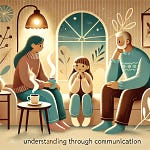The Illusion of External Fixes
Many of us, at some point in our lives, have believed that the key to our happiness and success lies in external changes. We think, If only my job were better, if only my relationships were perfect, if only the world around me would align with my desires, I would be happy. But is that really true?
Let me share a story that illustrates this idea perfectly.
One night, a man who was heavily intoxicated was making his way home. He stumbled on the road, fell multiple times, and by the time he reached his house, his body was bruised and aching. To hide his injuries from his family, he hurried to the bathroom, grabbed a first aid kit, and stood in front of the mirror to assess his wounds.
As he looked into the mirror, he began applying bandages and ointments—but not to his body, rather to the reflection he saw. He carefully covered every bruise he saw in the mirror, convinced he was treating his pain.
The next morning, he woke up, expecting to feel healed. But what did he see? His wounds were still there, untouched, while the mirror was covered with bandages.
This story gives us a powerful lesson: we often try to fix the world outside while neglecting the real issues within.
Looking in the Wrong Direction
The man in the story made a simple but profound mistake—he tried to treat his wounds by fixing their reflection instead of addressing the real injuries. Similarly, in life, many of us focus on external circumstances as the cause of our problems, instead of looking within.
When we feel unappreciated at work, we blame our boss instead of examining our own contributions and self-worth.
When relationships don’t go the way we want, we blame the other person rather than evaluating our own emotional patterns.
When life feels overwhelming, we blame society, the economy, or external situations instead of finding our own inner balance.
We have been conditioned to believe that happiness and peace come from the outside world. But the truth is, everything we seek begins within us.
The Power of Inner Work
Fixing ourselves doesn’t mean ignoring real-world problems. It means recognizing that external circumstances alone don’t determine our happiness or fulfillment. Our perceptions, thoughts, and emotions play a much bigger role.
1. Shifting from Reaction to Response
When we are externally focused, we react impulsively to what happens around us. But when we look inward, we learn to respond mindfully.
For example, if someone criticizes us, we might instantly feel hurt or defensive. But if we develop inner awareness, we can pause and ask, Why does this bother me? Is there truth in it? How can I use this feedback for growth?
2. Breaking the Cycle of Blame
Blaming external factors keeps us stuck. If we always think, My life would be better if only this person or situation changed, we give away our power. Instead, asking ourselves, What can I do differently? shifts the focus to what is within our control.
3. Understanding Our Patterns
We all have emotional patterns shaped by past experiences. Some of us might have a pattern of seeking approval, avoiding conflict, or fearing failure. The more we observe our inner world, the more we understand these patterns and can begin to change them.
4. Developing Inner Resilience
The world will always have ups and downs. External situations will never be fully in our control. But if we build inner resilience—through mindfulness, meditation, self-reflection, and emotional mastery—we develop the ability to stay centered no matter what happens around us.
Practical Steps to Start Looking Within
Understanding the concept is one thing, but applying it requires conscious effort. Here are a few simple yet powerful steps to begin shifting your focus inward:
Practice Self-Reflection
Take 5-10 minutes each day to sit quietly and reflect on your thoughts and emotions.
Ask yourself: What am I feeling today? What triggered these feelings?
Journaling can also help process your inner world.
Meditate Daily
Meditation helps you connect with your thoughts without being overwhelmed by them.
Even just focusing on your breath for a few minutes can bring clarity and calmness.
Observe, Don’t React
The next time something upsets you, pause before reacting.
Instead of immediately blaming someone else, ask, What is this situation teaching me about myself?
Surround Yourself with Positivity
The people, books, and content you consume influence your mindset.
Engage with uplifting, self-growth-oriented material.
Embrace Imperfection
Growth is a process. Some days will be easy, others challenging.
Be kind to yourself as you learn and evolve.
Conclusion: The Change Begins With You
The story of the intoxicated man serves as a reminder that trying to fix the external world while ignoring the internal one is futile. If we truly want change—whether in our happiness, relationships, or life circumstances—it must start from within.
Instead of waiting for the world to align perfectly, we can choose to cultivate peace, clarity, and resilience within ourselves. This inner transformation will then reflect in our external reality, leading to a more fulfilling and empowered life.
So, the next time you find yourself frustrated with the world, pause and ask: Am I trying to fix the mirror, or am I healing myself?
Start the journey inward, and you’ll be amazed at how the world around you begins to change in response.
P.S. If this message resonated with you, take a moment today to reflect on one area in your life where you might be looking outward for solutions. Instead of waiting for change, take one small step toward inner growth. Share your thoughts in the comments—I’d love to hear your insights!













Share this post